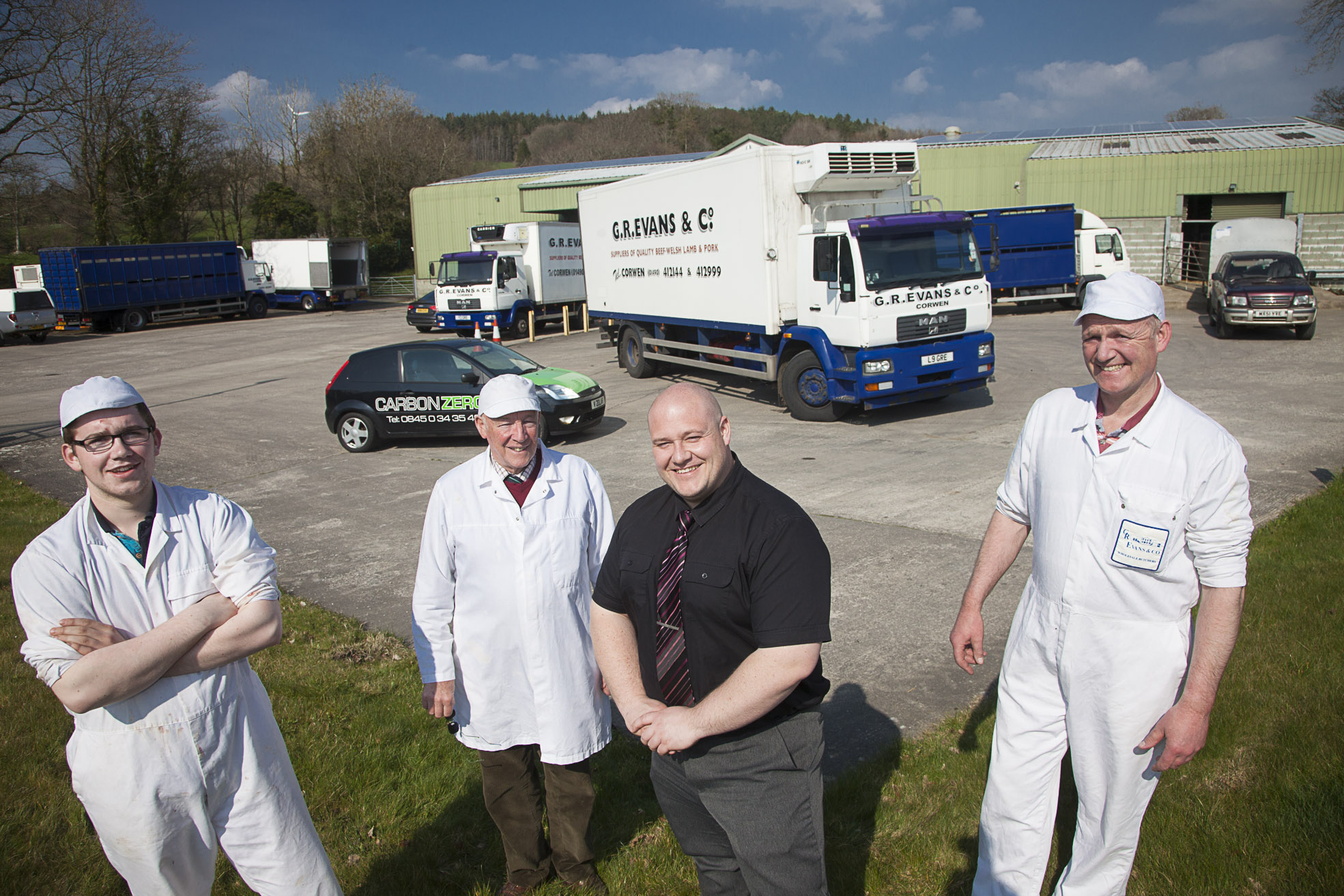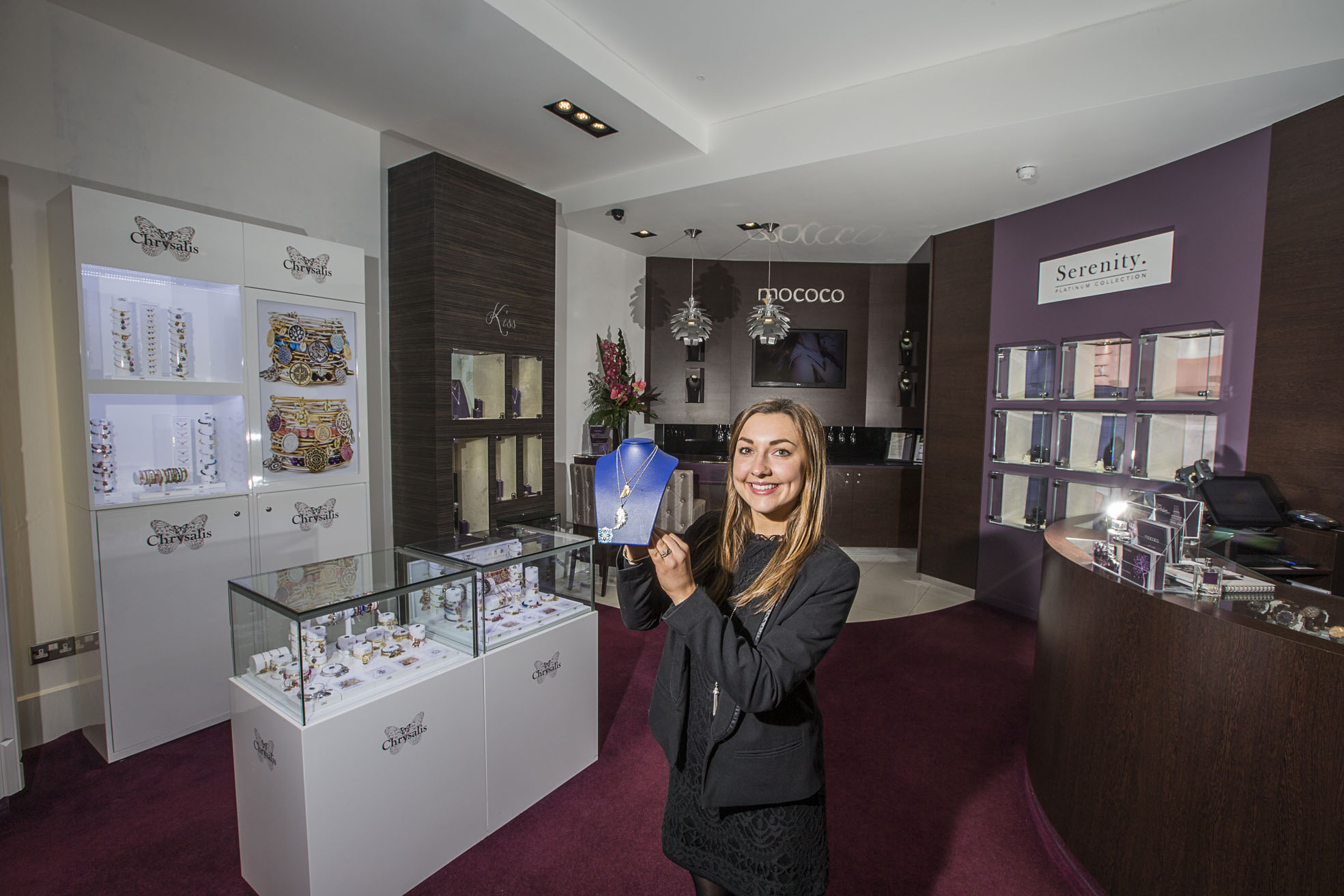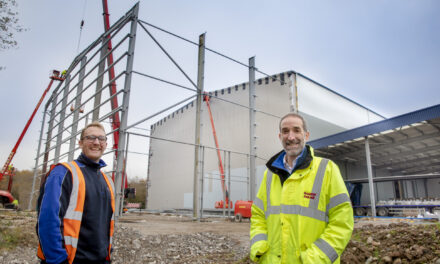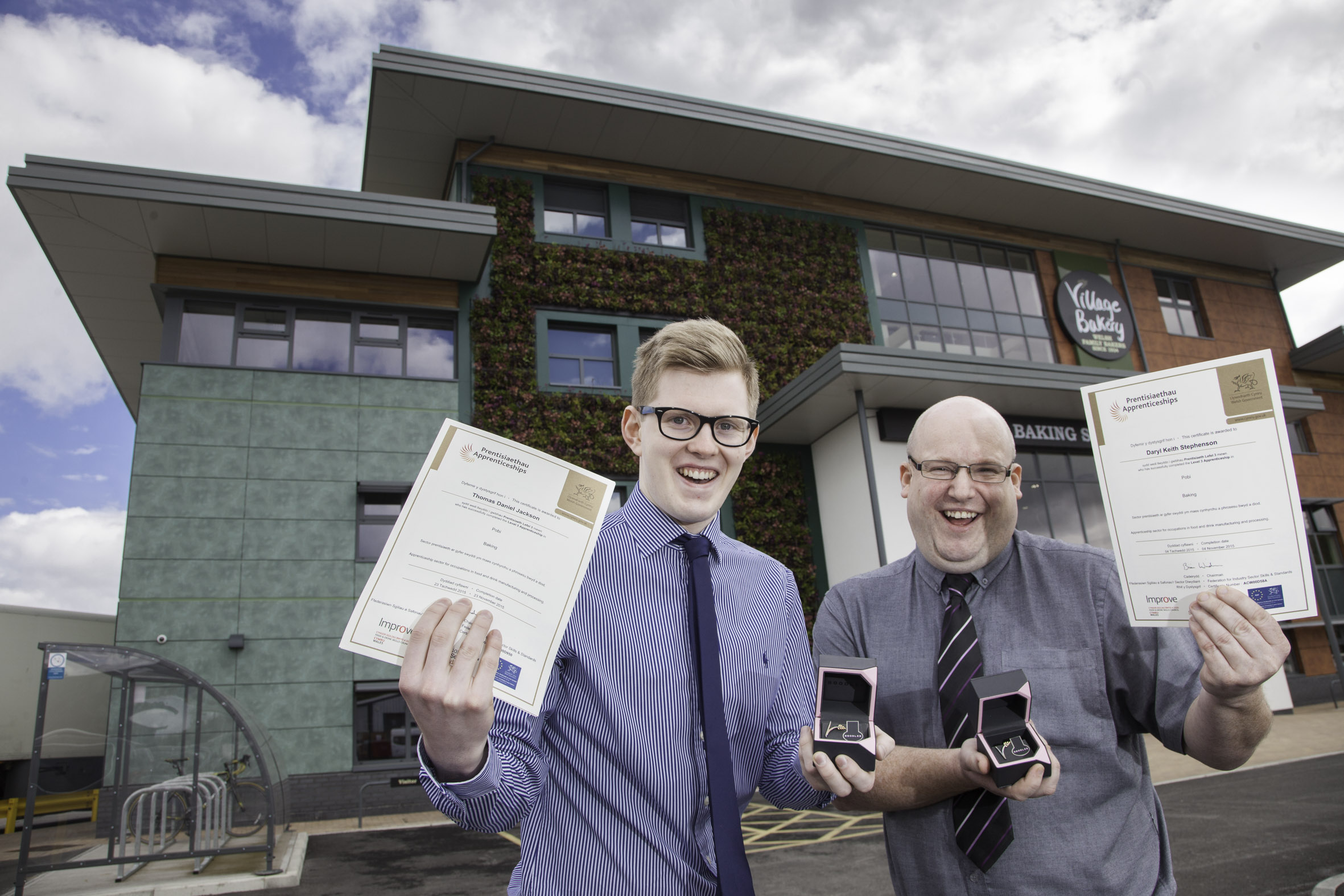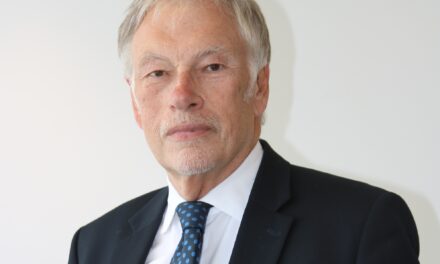Wales’s first solar-powered abattoir has been switched on.
The G R Evans and Co Abattoir, near Corwen, is now using 120 solar panels on its roof to help power the plant and cut its £2,000 a month electricity bills.
The business, which processes over 25,000 livestock, lambs, pigs and cattle, annually, now has a 30 kilowatt solar system on its roof which will generate over 25,000 kilowatt hours a year, enough for six family homes.
The system, which cost under £30,000 and will pay for itself within six years, was installed in just three days by St Asaph-based solar energy specialists Carbon Zero Renewables and the early April sunshine has meant it’s been off to a flying start.
The decision to go for solar was made by business chairman Bryan Evans, whose father founded the family butcher’s business in Corwen in 1938 where they still have a shop.
Gareth Jones, Managing Director of Carbon Zero Renewables, said: “We kitted Mr Evans’s home with infra-red heating panels before Christmas, so he knew about us and how we work.
“There are an awful lot of large buildings in the countryside which have big roof areas which are ideal for solar power systems and the abattoir here is perfect and like many farming related buildings it also has a high electrical usage.”
G R Evans and Co is into its fourth generation now with Bryan and son Rob now joined in the business by Rob’s son Tomos and they supply butchers and wholesalers across North Wales and as far as Liverpool, Chester, Frodsham, Tywyn, Aberdyfi and Oswestry.
The plant operates three days a week and the business employs up to 12 staff while as well as slaughtering animals for butchers and wholsesalers, Bryan Evans also buys livestock at the farmers’ auctions in Welshpool, Ruthin, Oswestry, Bala and St Asaph.
Bryan said: “I read about Carbon Zero in the paper but I had been thinking of alternative power since we built the abattoir here in 1994 but hadn’t been able to find it at the right price before.
“I like anything for nothing and sunshine is free but I’ve always been interested in technology and we use heat recovery exchangers on the motors of the refrigeration plant to heat the water here.
“I’m trying to look to the future and we don’t have to pay for the sun, we just need to find a way to convert it.
“The fitting team started work here on a Monday and were finished by Wednesday even though the weather was awful – I just brought them some steak and kidney pies from the shop to keep them going.”
Gareth Jones added: “The building here has a great open aspect so there’s a good spread of sunshine all through the day.
“We would ideally have liked to put even more panels on the roof but were limited to 120 by the power company but that is still enough to make a big hole in Mr Evans’s electricity bill.
“All the power generated is used on the site in the equipment here such as the fridges and the scalding tanks. We are already looking into a second phase project that includes more panels and a battery storage system to provide further power for high usage appliances during the night.
“It’s nice that this is a family business and that this system will help them operate well into the future as it will generate power for them for over 20 years.”
Caption:
Carbon-1,2 and 4 Carbon Zero and The Abbatoir Ty Gwyn, Corwen which is the world’s first solar-powered abattoir. Pictured is Gareth Jones from Carbon Zero Renewables with, from left, Tomos, Bryan and Rob Evans.
Carbon-3 Carbon Zero and The Abbatoir Ty Gwyn, Corwen which is the world’s first solar-powered abattoir. Pictured is Gareth Jones from Carbon Zero with, from left, Rob, Bryan and Tomos Evans.

